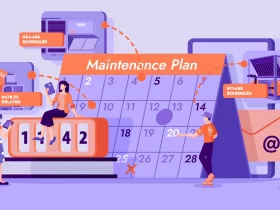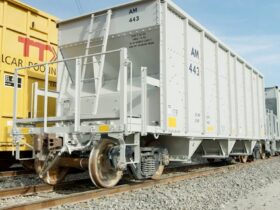Oracles serve as vital links connecting blockchain networks to off-chain data sources, facilitating the interaction of intelligent contracts with real-world data. Decentralized oracles, as their name suggests, function in a decentralized manner, utilizing a network of autonomous nodes to gather, verify, and furnish data to smart contracts. This decentralized model helps to minimize the vulnerabilities inherent in centralized oracles, which are susceptible to compromise or tampering.
The core principle behind decentralized oracles is the notion of consensus. Multiple independent nodes, often called Oracle nodes, retrieve data from various sources and submit their responses to the Oracle network. These responses are then aggregated, and a consensus is reached through predetermined consensus mechanisms, such as majority or stake-weighted voting. The consensus-driven approach ensures that the data delivered to the smart contract is reliable, tamper-resistant, and reflects the collective input of multiple trusted sources.
Importance of decentralized oracles in DeFi
DeFi applications rely heavily on external data sources to execute various financial transactions, such as lending, borrowing, trading, and asset management. For instance, a decentralized lending platform may require real-time information on asset prices, interest rates, or collateral values to facilitate lending and borrowing activities. Similarly, a decentralized exchange (DEX) might need accurate pricing data from multiple sources to execute trades efficiently and prevent front-running or other malicious activities.
Traditionally, DeFi applications have relied on centralized oracles, which pose significant risks. Centralized oracles are often controlled by a single entity, making them vulnerable to manipulation, censorship, or even outright failure. Additionally, they represent a single point of failure, meaning that if the centralized oracle goes offline or becomes compromised, the entire DeFi application could be adversely affected.
Decentralized oracles address these challenges by eliminating the need for a single trusted party. By leveraging a network of independent nodes and consensus mechanisms, decentralized oracles provide a more secure and reliable means of delivering data to DeFi applications. This enhances the integrity and trustworthiness of the data and aligns with the core principles of decentralization and transparency underpinning the DeFi ecosystem.
Furthermore, decentralized oracles enable DeFi applications to access a broader range of off-chain data sources, potentially unlocking new use cases and applications. For example, decentralized oracles could facilitate the integration of real-world data from various industries, such as supply chain management, IoT devices, or even social media sentiment analysis, enabling the development of innovative DeFi products and services. Get more info about the best cryptocurrency by checking out retik.com.
Expanding landscape of decentralized oracles
The notable development is the rise of decentralized oracle networks, which serve as platforms for connecting multiple oracles and data sources under a unified framework. These decentralized oracle networks aim to provide a comprehensive and modular solution for accessing and validating off-chain data, catering to the diverse needs of different DeFi applications. By aggregating multiple oracles and data sources, these networks offer a one-stop solution, streamlining the integration process and reducing the complexity of implementing and managing various individual oracles.
Furthermore, these networks often employ advanced techniques to enhance the reliability and security of the data delivery process. For example, some networks leverage cryptographic techniques such as trusted execution environments (TEEs) or secure enclaves to ensure the integrity of the data processing and validation mechanisms, even in the presence of untrusted or compromised nodes.
The interoperability and composability of decentralized oracles are also critical areas of focus. As the DeFi ecosystem expands across multiple blockchain networks, seamlessly integrating oracles and sharing data across different platforms becomes increasingly crucial. Initiatives are underway to develop standardized protocols and interfaces that facilitate cross-chain communication and data sharing among decentralized oracles, further enhancing the potential for collaboration and innovation within the DeFi space.










